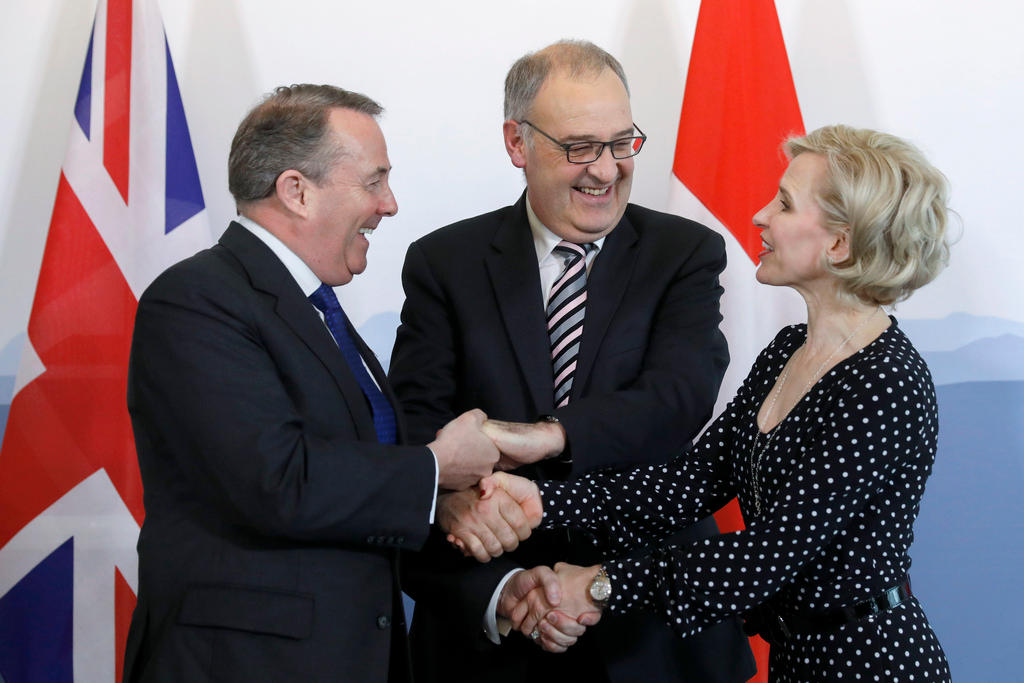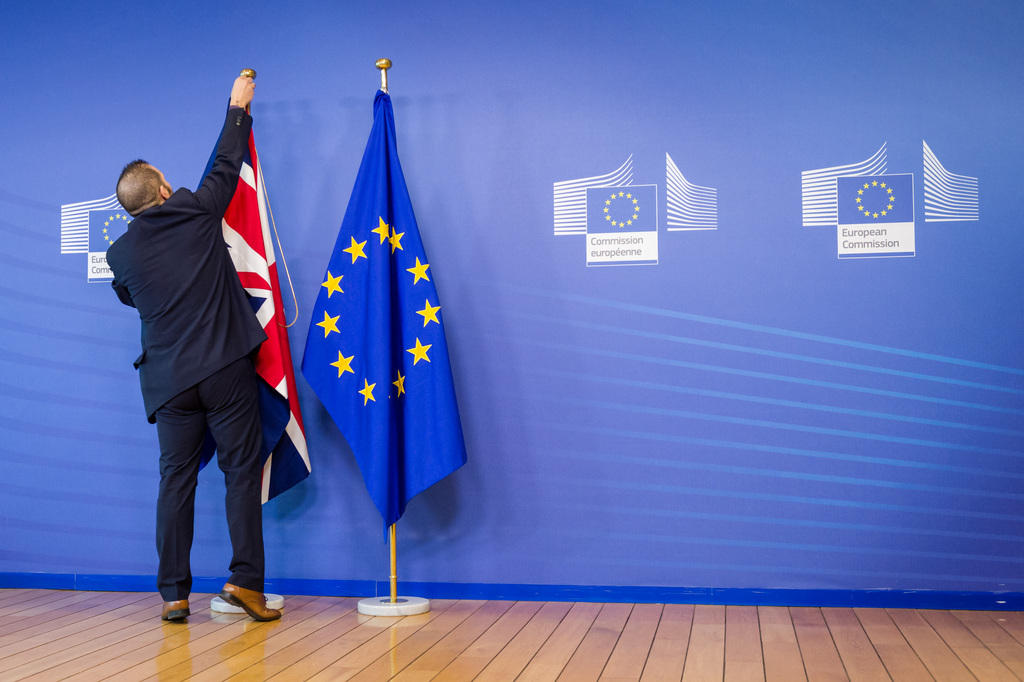Swiss companies make contingency plans amid Brexit uncertainty

As the Brexit saga continues, Swiss companies are preparing for the worst and hoping for the best. But optimism is waning among companies that are trying to minimise disruptions from any deal/no-deal scenarios.
With the UK’s departure from the EU scheduled for March 29, British Prime Minister Theresa May on Wednesday asked the EU bloc to postpone the UK’s departure until June 30. If accepted, it prolongs the three-year guessing game for yet another three months.
Although a post-Brexit trade deal signed by the UK and Switzerland in February assuaged some concerns, the uncertainty surrounding Brexit is nevertheless testing the patience of many Swiss companies with significant business dealings in the UK.
Trade ties
The UK is one of Switzerland’s largest trading partners. In 2018, the UK was Switzerland’s sixth-biggest export marketExternal link (CHF8.8 billion) and the eighth-largest source of Switzerland’s imports (CHF7.7 billion)
Deloitte consulting firm’s latest surveyExternal link of the mood of more than 100 Chief Financial Officers (CFOs) at major Swiss companies found that optimism about the Swiss economy and company prospects is dwindling. In general, more CFOs are pessimistic than in the previous survey in September, with protectionism and geopolitical factors playing a more prominent role in their outlook.
The political uncertainty created by Brexit remains at the top of the CFOs’ agenda. Overall, 74% of them expressed concern about the situation, compared with 61% in the previous survey.
A large majority of the executives solicited (81%) expect a recession in the UK within the next two years.
“The fear of recession in the UK by Swiss companies is surprisingly high,” said Michael Grampp, Deloitte’s chief economist. There are concerns that the bleak prospects in the UK could also affect the Swiss economy.
Earlier this month, the Swiss Global Enterprise association wroteExternal link that “depending on how the UK’s withdrawal from the EU is structured, there could be indirect consequences for international companies based in Switzerland and Liechtenstein. It remains uncertain how the economic situation will develop in these two markets, how demand for Swiss goods will be affected and whether value chains will need to be reorganised.”
Minimising disruptions
Some Swiss companies are reportedly preparing for a range of scenarios to help limit disruptions to supply chains, product delivery and staffing.
In a statement to swissinfo.ch, Nestlé said it supports a future relationship between the UK and EU that is mutually beneficial, allowing businesses to trade freely. “The prospect of the UK leaving the EU without such a relationship in place is concerning and would present a major challenge for the food and beverage industry. Our priority is to ensure continued consumer access to food and drink products in both the UK and other European countries regardless of the final political settlement.”
The company has around 8,000 employeesExternal link in 20 locations in the UK and Ireland.
Basel-based agribusiness Syngenta told swissinfo.ch that it remains hopeful that the UK and the EU will be able to put in place arrangements that ensure an orderly transition, enabling business continuity in the short, medium and long term.
“We are confident in our ability to manage the potential impact that could result from the UK leaving the EU without a formal transition arrangement in place – i.e. no deal. Especially with respect to our 2,000 UK employees at five UK locations.”
Credit Suisse says it is in discussions with relevant regulators, employees and key stakeholders and its solution will involve multiple locations, including Madrid, Frankfurt and Luxembourg. It also told swissinfo.ch in a statement that “London will remain a key part of the bank’s footprint even after the UK’s exit from the European Union”.
When all else fails
While many companies are tight-lipped about their specific preparations, there is talk of contingency plans including stockpiling supplies. UK ministers have been sounding alarmsExternal link about bottlenecks in access to medicines and impact on the pharmaceutical industry in particular.
Swiss pharmaceutical company Roche says it is taking every measure to ensure as much as possible that patients in the UK and mainland Europe continue to have access to medicines and innovation. The company has determined the level of inventory required on an individual product basis and is participating in the Medicines Supply Contingency Planning ProgrammeExternal link run by the Department of Health and Social Care.
More specifically, a company spokesperson said “we are planning to have at least six weeks’ worth of additional stock for all of our products, on top of the high levels of stock that we already have as standard, by the end of March”.
+ See how Novartis is hoping to ensure continuity of supply of medicines in the UK
Nestlé also indicated that its preparations include retaining some stocks of materials and ingredients but would not specify which ones.
The company supports FoodDrinkEurope’s call for contingency measuresExternal link for food products, mitigating the impact of a no-deal situation on consumers and businesses. These measures relate to customs, labelling, goods already placed on the market, food safety and certification of organic products.
The association has said that a no-deal exit would be “a lose-lose situation for the entire agri-food chain” as it would lead to import tariffs that increase prices for suppliers, retailers and consumers.
Silver lining…
It’s not all bad news though. Bloomberg reported that there was a 58% surge in shipments of watches from Switzerland to the UK in February, which is four-fifths of the worldwide growth for the industry, according to the Federation of the Swiss Watch Industry.
The Swiss chocolate maker Lindt & Sprüngli recorded “excellent growth of 11.3%” last year in the UK “despite a precarious political situation”, according to the Swiss News Agency.
Perhaps Swiss chocolate and watches can provide some comfort for Brits in troubling times.
On March 21, the European Council agreed to delay Brexit until May 22 if Prime Minister May’s deal is approved by the UK parliament. If the deal is not approved, the European Council says an extension until April 12 will apply.

More
Switzerland formalises post-Brexit trade agreement with the UK

In compliance with the JTI standards
More: SWI swissinfo.ch certified by the Journalism Trust Initiative















You can find an overview of ongoing debates with our journalists here . Please join us!
If you want to start a conversation about a topic raised in this article or want to report factual errors, email us at english@swissinfo.ch.